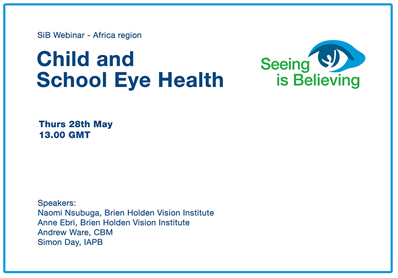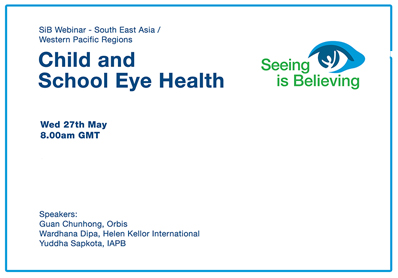Join a powerful, unprecedented alliance for better eye health for all.
Join IAPBA series of interviews with global experts from various organisations as they reflect on COVID-19 and eye health.
The following videos include recorded webinars from the COVID-19 & Eye Health, and the Indigenous Eye Health Web Series.
Watch interviews with global experts from various organisations as they discuss COVID-19 and its impact on eye health.
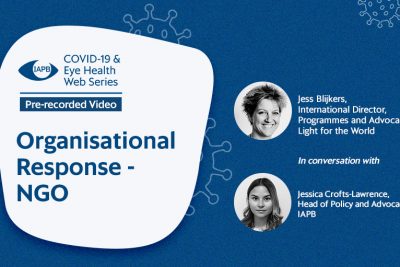
Jess Blijkers, International Director of Programmes and Advocacy, Light for the World joins Jessica Crofts-Lawrence, Head of Policy and Advocacy, IAPB to discuss how they have adapted so quickly to the pandemic, listening to what partners needed in order to support them effectively and ensure inclusion for people with disabilities and those with visual impairment. The approaches that Light for the World took included planning for different scenarios and assessing how these could affect the organisation, as well as working digitally which encouraged more inclusive working.
In terms of advocacy, the focus has currently shifted and is largely on people with disabilities and supporting them during this crisis. The current situation means that organisations have to work closer together and coordinate efforts. A call to action for the eye health sector is to keep emphasising the importance of eye health, and continue to reinforce this message.
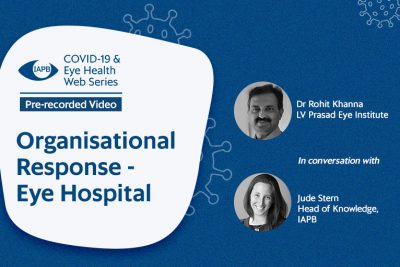
Dr Rohit Khanna, Associate Director, LV Prasad Eye Institute, is interviewed by Jessica Crofts-Lawrence, Head of Policy and Advocacy, IAPB to discuss the impact of COVID-19 on their eye hospital.
Dr Khanna talks about their strategies for managing the response and also the opportunities that have arisen from the crisis including developing new innovative products and the use of technology to communicate with patients.
Dr Khanna emphasises one of the main lessons learnt from this is that you have to look for opportunities in adversity instead of spending time worrying about it. In the future we must be more prepared dealing with situations like this.
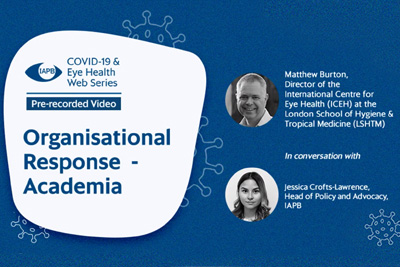
Matthew Burton, Director, International Centre for Eye Health discusses the impact of COVID-19 on the ICEH’s work. Although the pandemic has effected research programmes at ICEH, there have been some positive learnings from this as they have adapted to alternative ways of working. The Community Eye Health Journal recently published a special COVID-19 edition which has received very positive feedback. People from around the world have contributed articles to it, sharing their guidance on how they have adapted their work and practices during the pandemic to help serve the eye health community.
Matthew also discusses the Lancet Global Health Commission on Global Eye Health, a report that he and others globally have been working on, analysing the current state of eye health, and the economic and health impacts that this has on low, middle, and high income countries. The report will complement the World Report on Vision, and is intended to be a useful advocacy tool in terms of addressing eye health, as well as for health and broader development. The Lancet Global Health Commission on Global Eye Health will be published in December 2020.
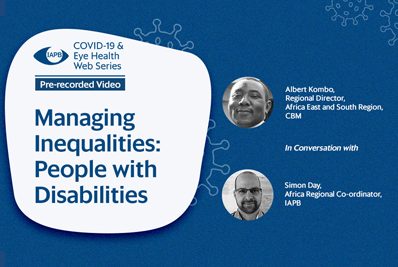
IAPB Regional Co-ordinator Simon Day interviews Albert Kombo, Regional Director, Africa East and South Region, CBM International to discuss the impact of COVID-19 on people with disabilities.
Albert talks about how the medium of communication needs to be inclusive in order for people with disabilities to understand the messaging around COVID. People with disabilities have not been sufficiently reached with certain social protection measures and health interventions need to be more accessible for all.
Albert emphasises the most important thing beyond sustaining service delivery is advocacy. The eye health sector must sustain the gains that have been made in highlighting eye care as an issue.
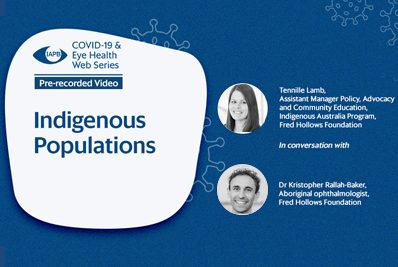
Aboriginal and Torres Strait Islander people are three times more likely to be blind or vision impaired than other Australians and they are less likely to be able to access essential services such as cataract treatment. Despite inequities such as these, less than 1% of Covid-19 patients in Australia have been Aboriginal or Torres Strait Islanders – in a population of over 800,000 people, only 59 have contracted Covid-19. Tennille Lamb from the Fred Hollows Foundation Indigenous Australia Program and Dr Kris Rallah-Baker – Australia’s first Indigenous Ophthalmologist – discuss the success of the Aboriginal and Torres Strait Islander response to the pandemic. They address the community based foundations of eye health programmes and the importance of ensuring indigenous development of indigenous solutions.
This is the first presentation in IAPB’s Indigeneity and Eye Health Series. We will be posting regularly in the lead-up to our Global Assembly in October 2021. Check back August 9 for our next instalment, coinciding with the International Day of the World’s Indigenous Peoples.
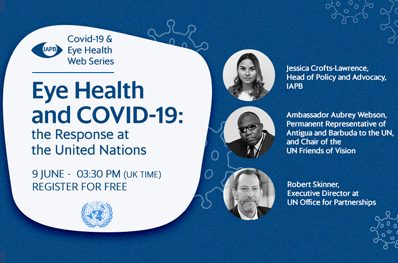
We are delighted that IAPB’s CEO Peter Holland hosted the first webinar of COVID-19 & Eye Health Webinar Series on Eye health’s role and response during the current COVID-19 pandemic.
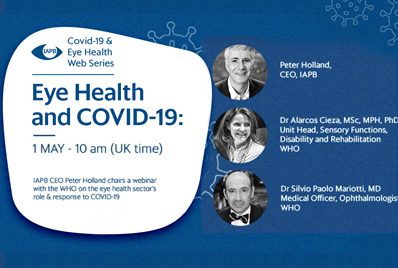
We are delighted that IAPB’s Head of Policy and Advocacy hosted the webinar of COVID-19 & Eye Health Webinar Series on Eye Health and COVID-19: the Response at the United Nations
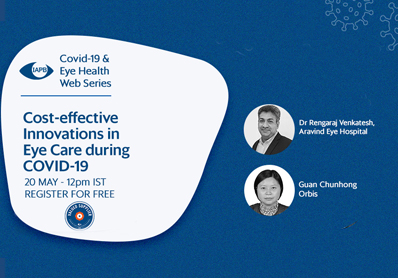
IAPB’s Head of Knowledge, Jude Stern hosted our third webinar of COVID-19 & Eye Health Webinar Series on Cost Effective Innovations in Eye Care during COVID-19
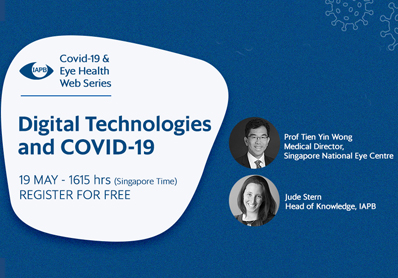
IAPB’s Head of Knowledge, Jude Stern hosted our second webinar of COVID-19 & Eye Health Webinar Series on Digital technologies and how they can help during the COVID-19 pandemic
